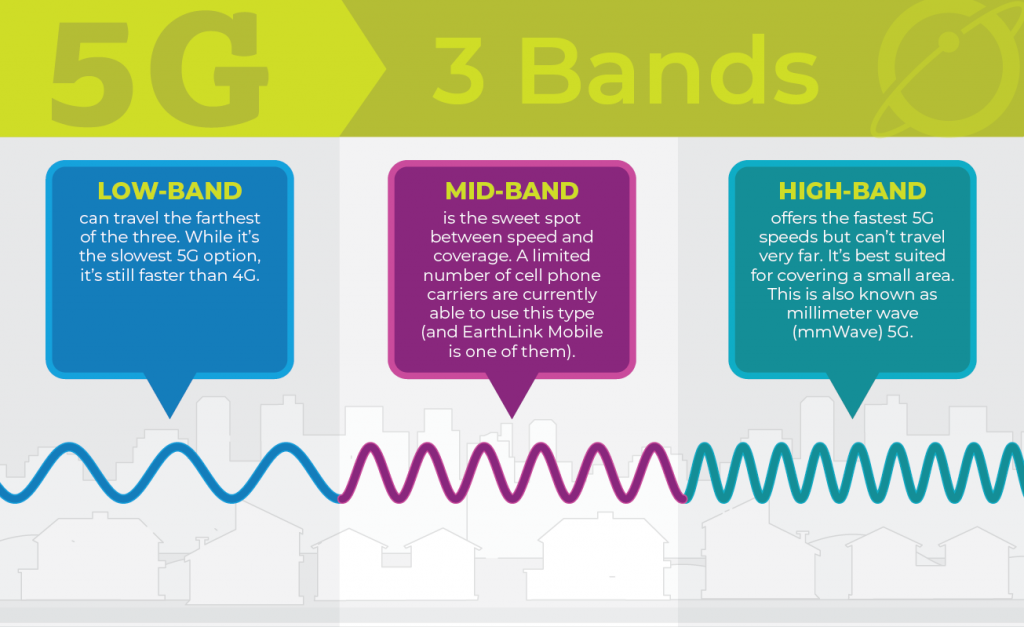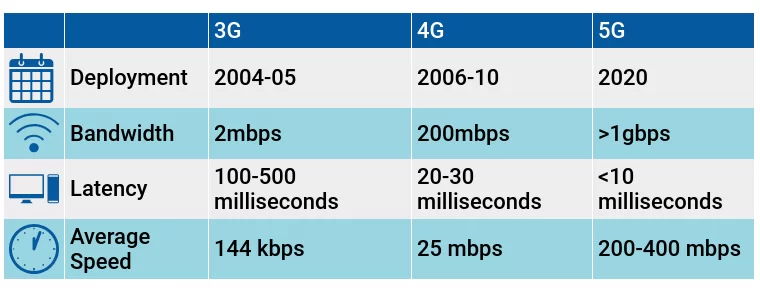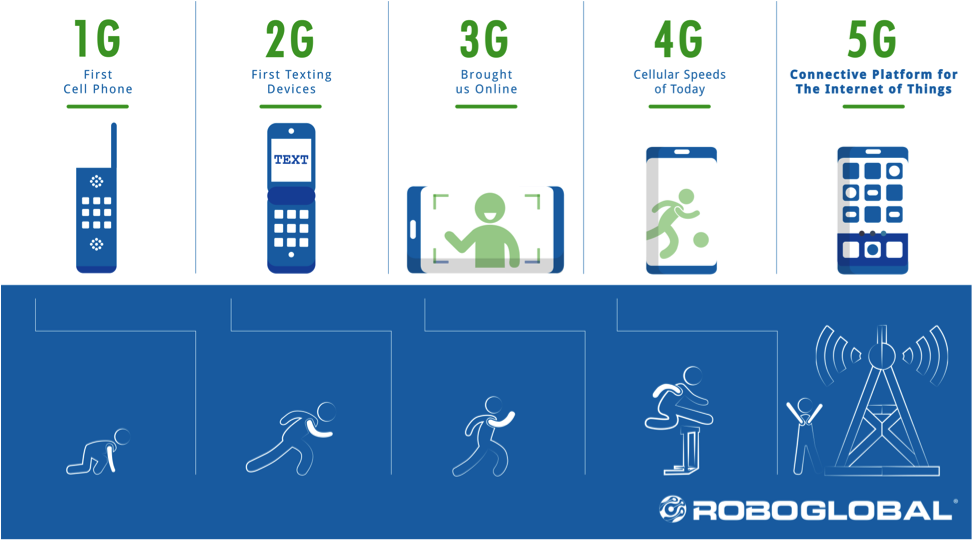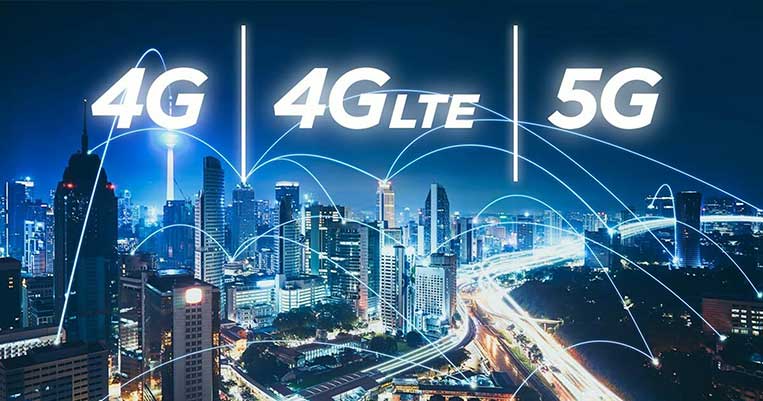The difference between 5G and 4G internet
The difference between 5G and 4G internet
In today’s age, the Internet is an inseparable part of our lives. There is almost nothing that cannot be done with the Internet more easily and faster than usual. Therefore, the Internet has always moved forward and progressed in order to improve both in terms of speed and in terms of stability and functionality. Among the latest developments in the Internet, we can mention the launch of the 5th generation Internet or 5G Internet.
But what is the difference between 5G and 4G internet?
Next, we will examine the difference between the 4th generation and the 5th generation internet. Stay with us.!
What are the differences between the 4th generation internet and the 5th generation internet?
In general, internets such as high-speed internet, unlimited internet, etc. become more useful and powerful in terms of speed and quality as well as connection. Hence, one of the obvious differences between 4G and 5G internet; Better quality and speed. But what is the difference between 5G and 4G internet? In the following, we will examine this difference.
Network difference in 4th generation internet and 5th generation internet
Another difference between the 5th generation internet and the 4th generation internet is the difference in their networks and infrastructure. In fact, the 4th generation internet covers 4000 devices per square kilometer, but the 5G internet covers about 1 million devices per square kilometer, which is a significant number. On the other hand, this feature makes this internet very useful for increasing the penetration rate. If you are not familiar with the concept of penetration coefficient, you can read the article What is penetration coefficient and how it is calculated.
The difference between 5G and 4G internet in terms of speed
As mentioned earlier, 5th generation internet is better than 4th generation internet in terms of speed. But what does this better speed mean? It can be roughly said that the speed of 5G internet is 100 times faster than that of its previous generation, i.e. 4G. Therefore, if you need a very high speed, in the field of mobile internet, the 5th generation internet or 5G can be a very suitable option.
It should be noted that the internet speed varies from country to country, but the average 4G internet speed is around 20 to 30 MB/s. And according to what has been said, the speed of 5G internet is about 10 gigabytes per second. Of course, on the other hand, according to official sources, this internet can reach up to 30 GB/s on paper.

On the other hand, these speeds are all according to the experts and may not reach this value in practice. So what is the real speed of the 5th generation internet? In this regard, it should be mentioned that South Korea is one of the first countries to launch the 5th generation internet.
The speed he received from his internet was approximately 119 megabytes per second, which contradicts the statements. On the other hand, we can still hope to improve the speed of this internet and reach the limit that has been mentioned.
The speed he received from his internet was approximately 119 megabytes per second, which contradicts the statements. On the other hand, we can still hope to improve the speed of this internet and reach the limit that has been mentioned.
The amount of delay in the network is another difference between 5G and 4G internet
Another difference between the 5th generation internet and the 4th generation internet is the amount of delay that these two internets have. In fact, one of the important indicators that must be taken into account to make communication networks more efficient is the delay of these networks. A communication network with a high delay rate usually cannot be as efficient as a network with a delay of a few milliseconds.
Therefore, scientists and astronomers have sought to improve this delay rate. In the 4th generation internet or 4G, the delay rate is around 200 milliseconds. Although, despite the fact that it takes about 250 milliseconds for humans to notice the visual delay, this rate of delay is considered a good rate. But you need to know that the delay rate of generation 5 internet is only about 1 millisecond.
Of course, it should be noted that this value is the same as the expected 5th generation internet speed and is on paper. In fact, this advanced internet technology has a long way to go. But in general, the difference between 5G and 4G internet is that the 5th generation internet has a much lower delay rate.

Is the 5th generation internet different from the 4th generation internet in terms of coverage area?
Another difference between 5G and 4G internet is that the 5th generation internet currently covers less areas. Of course, this is also quite logical, because this internet has just been released and has a long way to go before opening its place in new internets. Of course, on the other hand, it is also interesting that the 4G Internet has not completely covered all areas.
The amount of difference in battery consumption of 5G and 4G internet
Another difference between 5th generation internet and 4th generation internet is energy consumption. Considering that fewer areas are still covered by 5G internet, the mobile phone should spend more time looking for 5G internet. Therefore, it can be said that currently and according to the current conditions, the battery consumption of 5G internet is more than 4G internet.
final word
In this article, the difference between the 5th generation internet and the 4th generation internet was discussed so that you can choose the best for your internet based on these differences.

Frequently asked questions about the difference between 5G and 4G internet
What is the delay rate?
Latency rate refers to the amount of time it takes for information to move.
What are the disadvantages of 5th generation internet?
Among the disadvantages of this internet, we can point out the high price, less network coverage, and such things that will be fixed over time.
Do we need to switch our internet to 5G now?
Considering the difference in speed, price, etc., the most appropriate option is to use the fourth generation of the Internet.

